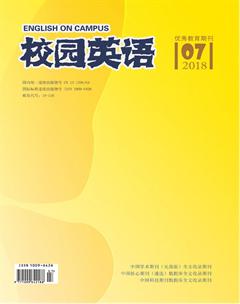TheStudyofGenre
I. The notion of Genre
Swales, in 1981 and 1990, offered a specific notion of genre as follows:
“It is a recognizable communicative event characterized by a set of communicative purpose(s) identified and mutually understood by the members of the professional or academic community in which it regularly occurs. Most often it is highly structured and conventionalized with constraints on allowable contributions in terms of their intent, positioning form and functional value. These constraints, however, are often exploited by the expert members of the discourse community to achieve private intentions within the framework of socially recognized purpose(s).”
In this notion, Swales particularly well characterized the features of genre of a discourse community. In order to make it more understandable, this definition could be elucidated as follows:
Firstly, “genre is a recognizable communicative event characterized by a set of communicative purpose(s) identified and mutually understood by the members of the professional or academic community in which it regularly occurs (Swales, 1990: 45).”
Secondly, “most often it is highly structured and conventionalized with constraints on allowable contributions in terms of their intent, positioning form and functional value.” (Swales, 1990:52)
Lastly, “these constraints, however, are often exploited by the expert members of the discourse community to achieve private intentions within the framework of socially recognized purpose(s) (Swales, 1990: 52).” In other words, the experts of a discourse community will more familiar with the rules, criterions and conventions of the genre of this community than outsiders.
In short, genre is language conventions, rules or criterions which evolve from discourse community. It can be identified or recognized through interactive purposes of members of community.
II. The orientation of Genre
The studies of genre analysis are varied according to different investigation purposes of the researchers. Normally the studies on genre analysis are primary addressed on three aspects: genre analysis and linguistics, genre analysis and sociology, genre analysis and psycholinguistics. The analysis between Genre and linguistics mainly focuses on studying genre from linguistics aspect. Earlier work of this area was concerned with register or stylistic analysis (Halliday, 1978).In recent years, the study began to deal with the linguistics explanation of different texts. Genre analysis in sociology primarily involves in studying how a specific genre is formed and operated in a social reality, such as, the influence of different genres on L2 learners in their writing. The studying of Genre analysis with respect to psycholinguistics is mainly focused on the cognitive constructing, especially on the specific aspect of learner acquisitions.
References:
[1]Swales J.M.1981.Aspect of Article Introductions [M].Brim-ingham.UK:The University of Aston,Language Studies Urut.
[2]Swales J.M.1990.Genre Analysis:English in Academic and Research Settings[M].Cambridge,UK:Cambridge University Press.
[3]Halliday,M.A.K.1978.Language as Social Semiotic:The social Interpretation of Language and Meaning.Baltimore:University Park Press;London:Edward Arnold.
【作者簡介】潘春,鲁迅美术学院大连校区。

